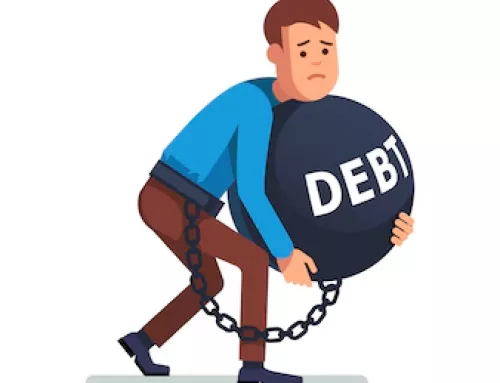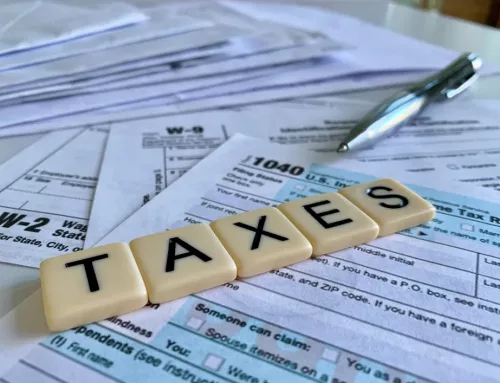Are you considering filing bankruptcy? Are you trying to figure out whether Chapter 7 bankruptcy is right for you or if your situation is better suited for Chapter 13? In this article, we’ll compare the two so that you can figure out which one is best for your situation.
Know How Chapters 13 and 7 Differ
Bankruptcy Chapters 7 and 13 are two of the most frequent debt relief options in the US. But the distinctions are obvious.
Choosing between chapters is a crucial choice if you’re contemplating bankruptcy. It might be the difference between debt and asset loss. Here is a summary of each chapter. Knowing the fundamental variations between them will help you choose the proper chapter for your financial situation. A competent Tacoma bankruptcy lawyer at Jones Legacy Law will be able to provide you with more information so you can make the right decision.
Bankruptcy Chapter 7: Bankruptcy Liquidation
In Chapter 7, the trustee seizes your nonexempt assets, sells them, and uses the money to pay your creditors. So Chapter 7 is suitable for debtors in grave financial problems who possess just what they need to survive.
If you own numerous cars, a vacation house, or other valuables, you may lose them in a Chapter 7 bankruptcy. If you have no assets, you may be able to claim them all via bankruptcy exemptions. State and federal rules specify what assets (and equity levels) are exempt from liquidation, allowing you to plan ahead of time.
There is no minimum or maximum debt to qualify for Chapter 7, but you must pass a means test to prove your eligibility. Your income must be less than the state median for a family of your size to qualify for Chapter 7. If it’s greater, you’ll need to factor in your assets, expenditures, and debt.
Individuals, single proprietors, and corporations may use Chapter 7. The procedure takes 4-6 months.
Chapter 13: Reorganization of Debt
Chapter 13 is not a liquidation proceeding. Rather than that, you will propose a repayment plan with the bankruptcy trustee, in which you will pay the trustee every month for 3-5 years. The amount of these payments will be determined by your available income and expenses.
Chapter 13 bankruptcy can be a choice for those who:
- are not eligible for Chapter 7
- are in arrears on non-dischargeable debt (taxes, child support, mortgages, etc.) and may make up the difference in the 3-5 year plan
- Own a property that exemption rules do not protect
- have a steady income to meet monthly payments.
You must be completely prepared to make the necessary payments—if you are unable to do so, the court may convert your case to a Chapter 7 petition, in which case you risk losing the assets you sought to safeguard by filing Chapter 13.
However, if you complete the plan, you may retain property associated with secured debt (e.g., your home) as long as you have caught up on arrears. As a result, many individuals file for Chapter 13 bankruptcy to prevent losing their houses or automobiles to foreclosure or repossession.
Find Out: What Rights Do Bankruptcy Laws Protect?
Chapter 7 Benefits
Here are some bankruptcy Chapter 7 benefits:
- Chapter 7 is a lot simpler than Chapter 13.
- In Chapter 7, most debtors do not have to worry about debt restructuring or repayment plans because those things are handled by the court-appointed trustee.
- Curing your debt problems and removing them from your credit report so that they do not affect your future credit.
- Starting over financially and being able to pay back any debts that will not be discharged, such as secured debts such as a mortgage.
- No more harassing phone calls from creditors, collection agencies, or bill collectors. You won’t have to cope with the Creditors Collection Agency.
- The automatic stay will stop all foreclosure activity on your house until the bankruptcy case is over. The automatic stay works in both chapter 7 & chapter 13 cases.
Chapter 7 Disadvantages
- Once you file for Chapter 7, your unsecured debts are forgiven, but your secured debts are not.
- This implies that if you have a loan on an automobile or home, then that debt will still be owed even after you file for Chapter 7.
- You may also be responsible for foreclosing on any property that is part of your bankruptcy. So if you owe money on a piece of real estate, you may need to begin foreclosure proceedings in order to protect yourself from further financial damage.
- Your credit report will indicate that you filed for bankruptcy, making it more difficult for you to obtain loans in the future. A new employer may also use this information to establish whether or not they want to hire you.
- The other disadvantage is that bankruptcy lasts longer than other types of bankruptcy. In most types of bankruptcy, the case is closed after a year. In this type, it can take up to 5 years for the case to be completely closed.
Chapter 13 Benefits
The benefits of Chapter 13 bankruptcy include:
- An opportunity to stop foreclosure or repossession on your home;
- An opportunity to catch up on missed mortgage payments as part of a Chapter 13 repayment plan;
- An opportunity to reduce your interest rate so you can save thousands in interest payments over time;
- Income tax benefits if you have a lot of debt from consumer credit cards or medical bills; and
- A chance to rebuild your credit rating after filing for bankruptcy.
Chapter 13 Disadvantages
- The main disadvantage of a chapter 13 bankruptcy is that it will stay on your credit history for up to ten years. During this time, you will not be able to file another chapter 13 bankruptcy.
- The court can dismiss your case if you fail to pay the monthly payments imposed by the court during the reorganization period or if you fail to appear at a hearing.
- You will lose all your assets and possessions and be forced to start over with nothing.
- You must pay at least $100 per month for the rest of your life if you meet certain requirements.
- You might lose your car, home, and other assets.
- Your credit score will plummet, and it may take years for it to recover.
- If you earn over a certain amount each month, you can’t file chapter 13 at all and must file under chapter 7 instead (this amount changes every three months).
- You will often need to take a credit counseling course before filing bankruptcy.
Which chapter is better for me?
An experienced Tacoma bankruptcy attorney at Jones Legacy Law can help you figure out which chapter is better for you.
In the end, both alternatives provide a fresh start from your debts. But your particular situation will ultimately determine which one is better for you.
Chapter 7 bankruptcy will help you eliminate debt in a more free-wheeling way, but it may also result in having your assets liquidated. Chapter 13 will result in keeping certain assets for creditors but offers more opportunities to maintain previous income levels to pay future debts.
But then again, you should speak with an experienced bankruptcy attorney at Jones Legacy Law before signing any legal paperwork regarding bankruptcy. Reliable bankruptcy attorneys can steer you in the right direction to financial freedom. Call our Tacoma bankruptcy law firm now for an initial consultation.




